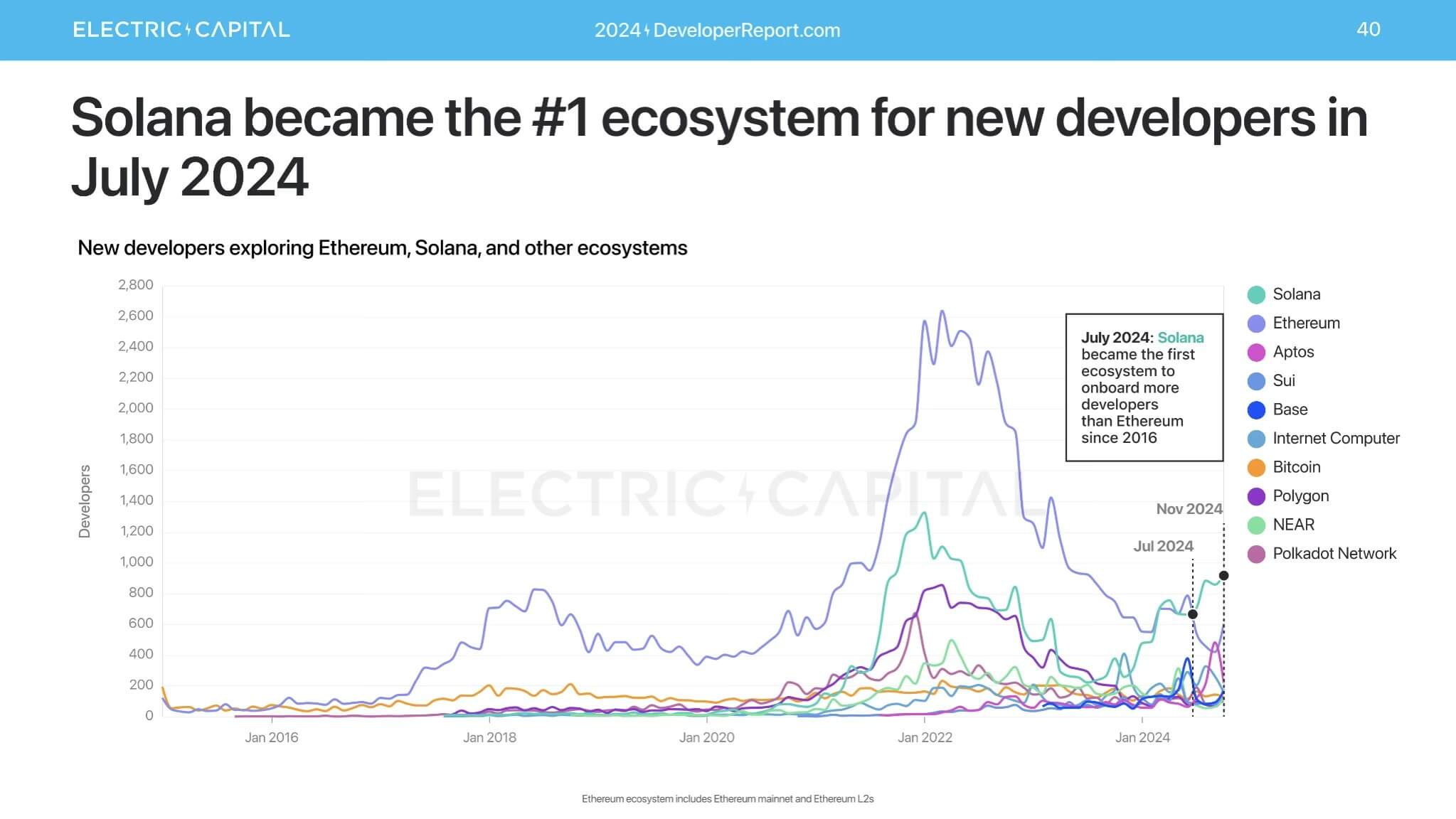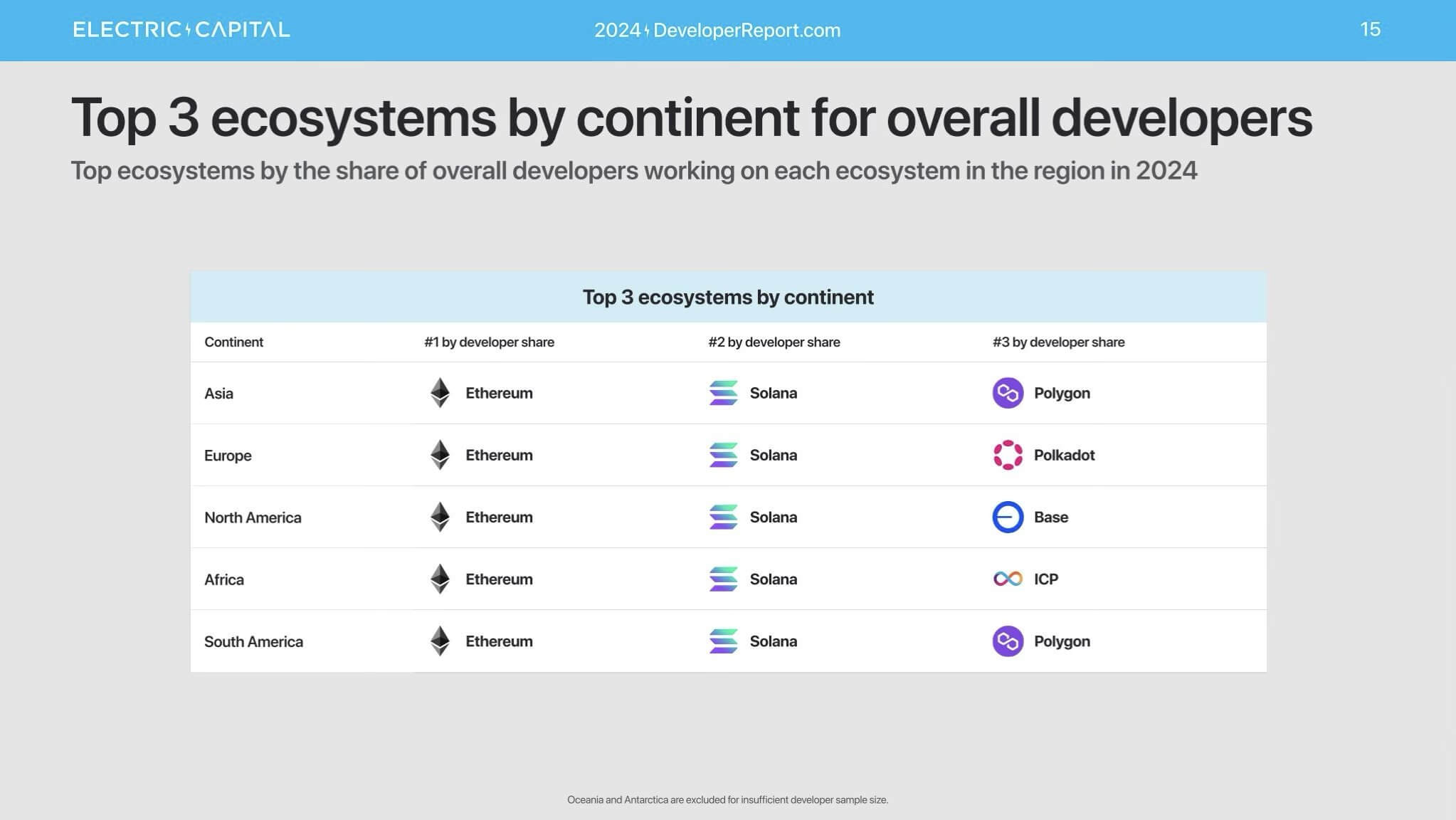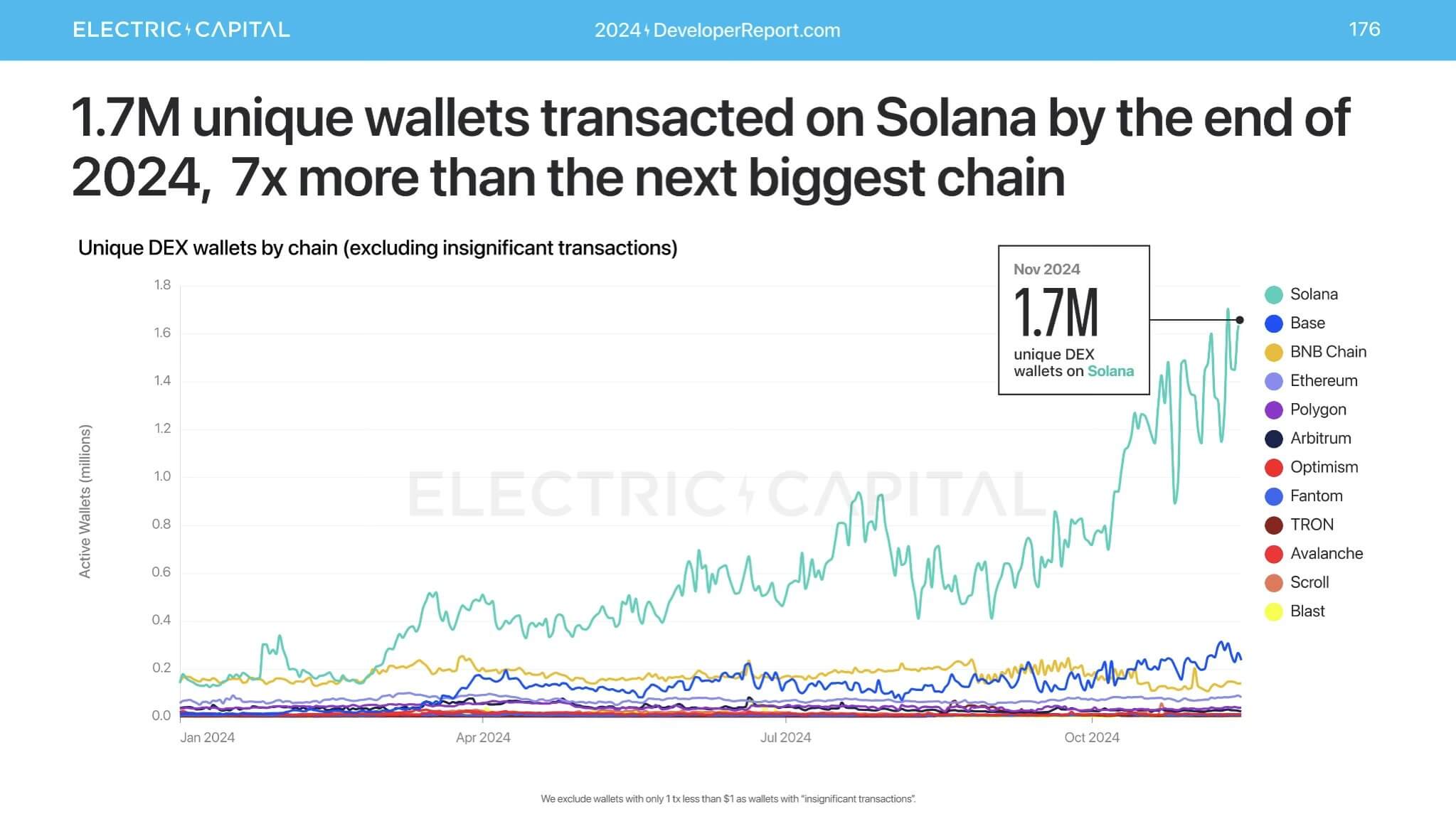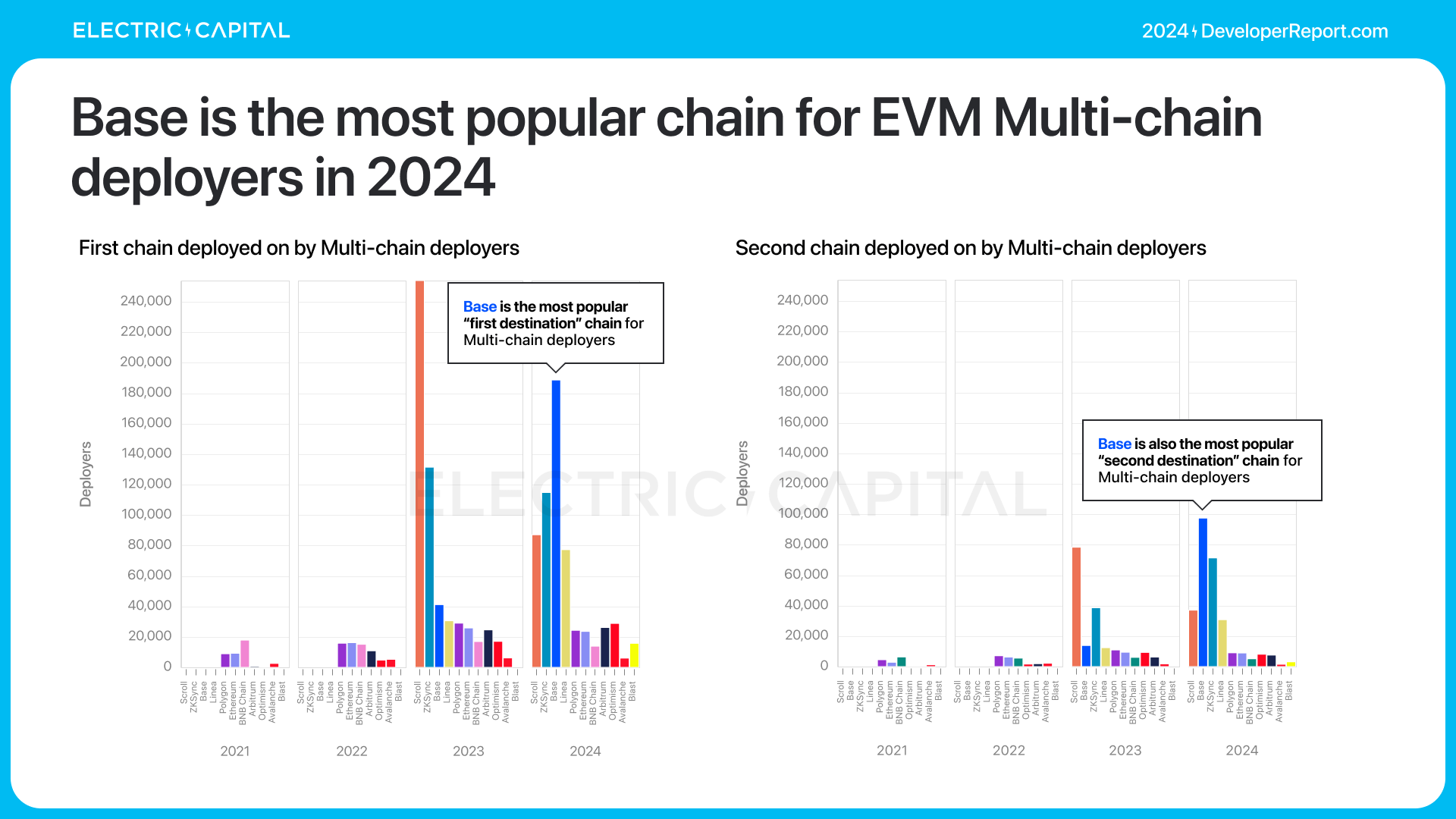 Solana emerges as fastest-growing ecosystem for developers globally
Solana emerges as fastest-growing ecosystem for developers globally Solana emerges as fastest-growing ecosystem for developers globally
Solana's grassroots approach in Africa fuels its rapid ascent in global developer rankings.

Cover art/illustration via CryptoSlate. Image includes combined content which may include AI-generated content.
Solana has claimed the top spot as the preferred blockchain ecosystem for new developers, eclipsing Ethereum’s dominance for the first time in nearly a decade.
A report by Electric Capital highlighted that 7,625 new developers joined the Solana network in the past year, marking the first time any blockchain ecosystem has surpassed Ethereum in developer attraction since 2016.

Solana has also positioned itself as the fastest-growing large ecosystem, with over 2,000 monthly active developers—a remarkable 83% year-over-year growth. This surge aligns with Solana’s global adoption, particularly in Asia. Across continents, Solana trails only Ethereum in total developer activity.
The network now leads as the top developer ecosystem in India and ranks second in the US, UK, Canada, and China. It is also a leading choice across Africa, especially in Nigeria.

Harrison Obiefule, co-lead of Solana Superteam Nigeria, attributes the network’s success in Africa to its grassroots approach, which focused on decentralization, talent development, and a mission to onboard users through earning rather than buying crypto.
What is drawing developers to Solana?
Electric Capital’s findings indicate that Solana’s appeal lies in its efficiency, scalability, and low transaction costs.
These factors have made it a preferred platform for developers focused on building cost-effective applications. Currently, the network powers 81% of decentralized exchange (DEX) transactions and handles 64% of NFT minting across all blockchain platforms.
In 2024, it facilitated transactions from 1.7 million unique wallets, outpacing its closest competitor by a factor of seven.

Moreover, Solana’s DeFi ecosystem has also flourished, with on-chain settlement volumes surpassing $574 billion in 2024 across DEX platforms. Additionally, its share of total value locked (TVL) outside Ethereum has grown from 3% to 25%, making it one of the fastest-growing blockchain ecosystems in terms of capital influx.
Ethereum maintains overall dominance
Despite Solana’s remarkable ascent, Ethereum remains the largest blockchain ecosystem in terms of overall developer activity.
While Ethereum’s monthly active developers dropped by 17% over the past year to 6,244, it still dominates in most regions, including Asia, Europe, North America, Africa, and South America.
Ethereum’s layer-2 solutions have continued to thrive, with a 67% increase in activity since 2021. Nearly 26% of all blockchain developers are now building on Ethereum’s main network or layer-2 platforms.

Among Ethereum Virtual Machine (EVM) chains, Base has become a standout performer, accounting for 25% of all original on-chain code logic in 2024. The report added:
“Base is responsible for 42% of the new code being written in the Ethereum ecosystem.”
Solana Market Data
At the time of press 1:30 pm UTC on Dec. 13, 2024, Solana is ranked #5 by market cap and the price is down 3.57% over the past 24 hours. Solana has a market capitalization of $107.15 billion with a 24-hour trading volume of $4.32 billion. Learn more about Solana ›
Crypto Market Summary
At the time of press 1:30 pm UTC on Dec. 13, 2024, the total crypto market is valued at at $3.6 trillion with a 24-hour volume of $193.89 billion. Bitcoin dominance is currently at 55.00%. Learn more about the crypto market ›



 CryptoQuant
CryptoQuant 




























































































 SOL
SOL